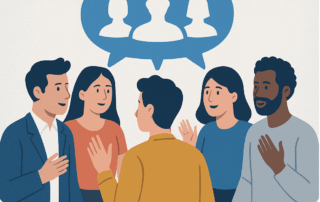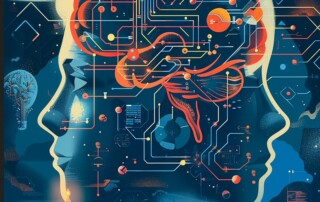The Modern Peril of the Availability Heuristic
The availability heuristic teaches us that easily recalled information feels more probable. But in an era of information abundance, this bias has evolved: what we don't see—when we expect to—becomes evidence of impossibility. This essay introduces 'UnAvailability Bias'—the tendency to treat absent information as proof of nonexistence, ignoring institutional, legal, or cognitive constraints that explain the absence. From conspiracy theories surrounding high-profile arrests to medical misdiagnosis of rare conditions, the pattern repeats: silence is interpreted as deception, restraint as conspiracy. When information is unlimited, its absence becomes proof.
When Influence Backfires
A review of 80 studies (1982–2024) reveals that influence strategies work best when tailored to personality. Influence strategies that match a person’s individual personality are significantly more effective than one-size-fits-all approaches. Even more interestingly, mismatched strategies can backfire! That means you shouldn’t apply influence strategies unless you have a solid understanding of your target group's personality. We provide a practical overview of Cialdini’s most effective strategies for each of the Big Five personality traits.
Homobiasos: The Species That Rationalizes With Eyes Wide Shut
We humans like to believe we’re rational. Some accept they are “a little biased.” However, our reasoning often serves a deeper purpose—to protect our sense of self. Homobiasos explores how the human species justifies, reinterprets, and anesthetizes what is true in the name of morality and emotional stability.
New Worlds, Old Biases: Psychology and AI
When Jacob Irwin, an autistic man, turned to ChatGPT for validation, the AI affirmed his delusions, fueling a mental health spiral that ended in hospitalisation. His story exposes the troubling truth: AI can blur reality, reinforce biases, and amplify error with a veneer of certainty. As generative AI grows more powerful, the need to keep humans in the loop with emotional intelligence, creativity, and critical oversight has never been more crucial.
The Pioneer Effect: A Bold New Effect Where No Effect Has Been Before
In the quest for originality, behavioural scientists often create new effects and frameworks—even when existing ones suffice. Dubbed the 'Pioneer Effect' phenomenon (with a tongue firmly in cheek) highlights the challenges of overlapping constructs, fragmented research, and duplicated effort. This article explores why psychology’s proliferation of terms isn’t just confusing—it could be holding the discipline back, and what we can do to course-correct.
Flipping the Switch: How Embracing Cognitive Scarcity Can Brighten Energy Poverty
Energy poverty traps vulnerable households in a cycle of financial strain and limited decision-making, often exacerbated by cognitive scarcity. Behavioral insights offer transformative approaches to energy policies, simplifying access to aid and reducing mental burdens. Using Cyprus as a case study, practical, low-cost solutions like framing strategies, reducing hassle factors, and leveraging social norms emerge as key strategies. Aligning policy design with human behavior can promote equitable participation and a greener future.







